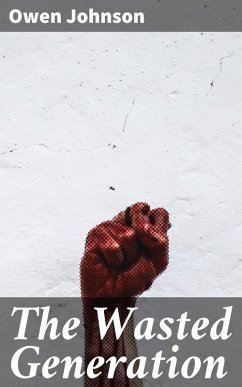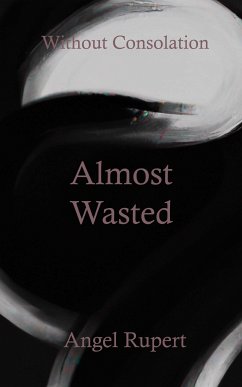
The Wasted Generation (eBook, ePUB)

PAYBACK Punkte
0 °P sammeln!
In "The Wasted Generation," Owen McMahon Johnson delves into the complexities of post-World War I American society, capturing the disillusionment and restless spirit of a youth caught between fading ideals and a tumultuous new reality. The narrative unfolds through a blend of sharp character studies and vivid imagery, showcasing Johnson's keen observational prowess. Written in the early 1920s, the book reflects the contemporary literary styles of modernism, emphasizing psychological depth and fragmented storytelling that resonates with the existential angst of the Lost Generation. Owen McMahon...
In "The Wasted Generation," Owen McMahon Johnson delves into the complexities of post-World War I American society, capturing the disillusionment and restless spirit of a youth caught between fading ideals and a tumultuous new reality. The narrative unfolds through a blend of sharp character studies and vivid imagery, showcasing Johnson's keen observational prowess. Written in the early 1920s, the book reflects the contemporary literary styles of modernism, emphasizing psychological depth and fragmented storytelling that resonates with the existential angst of the Lost Generation. Owen McMahon Johnson, hailing from a background steeped in journalism and fiction, was deeply influenced by his own experiences during a time of great societal upheaval. His encounters with the aftermath of war and the shifting cultural landscape are evident in his portrayal of youthful protagonists grappling with their identity and purpose. Johnson's nuanced understanding of American life, particularly among the disillusioned youth, enriches the narrative and underscores the moral dilemmas faced by his characters. I highly recommend "The Wasted Generation" to readers who seek a profound exploration of a time marked by chaos and change. Johnson's incisive prose and evocative themes offer a compelling reflection on the nature of hope, loss, and the search for meaning in an era reshaped by conflict.
Dieser Download kann aus rechtlichen Gründen nur mit Rechnungsadresse in A, B, BG, CY, CZ, D, DK, EW, FIN, F, GR, H, IRL, I, LT, L, LR, M, NL, PL, P, R, S, SLO, SK ausgeliefert werden.













